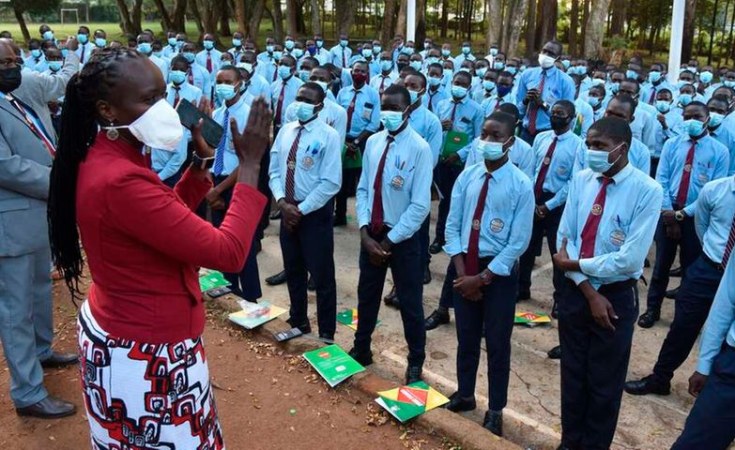It is from a small seed that the giant Iroko tree has its beginning. - Nigerian Proverb
By 2035, more young Africans will enter the workforce each year than in the rest of the world combined. This is the future, but even today, Africa has the youngest population in the world, with nearly 70% of the total population being under the age of 30.
As the rest of the world grows old, Africa vibrates with youth, offering unlimited potential for the continent. Africa is and will be at the forefront of the most pressing and global concerns of our age, like climate change, democracy, and peace. Young Africans like UNICEF Goodwill Ambassador Vanessa Nakate and Samuel Smith, President of the Kenya Children’s Assembly, are already leading groundbreaking national and global movements.
Having a young population brings many opportunities for development and innovation, but only if these opportunities are recognized utilized, and maximized. We are already seeing this unfold: 2022 was a record-breaking year for Africa’s start-up sector, which secured over $5.4 billion in funding . And every year I am in awe of young African innovators and the recognition they are receiving internationally .
Certainly, there are many challenges to unlocking this potential but the prospects of overcoming them are equally present. We must nurture that potential through early education programs for the youth who are in school today and will enter the workforce in 2035. It is in early childhood that their potential starts becoming either a reality or a missed opportunity.
However, if we look at sub-Saharan Africa alone, 42 million primary school-aged children are currently out of school. And only 50% of children are enrolled in pre-primary education, an especially important moment for a child’s brain development and their ability to develop essential social, and emotional skills crucial for their future.
Investing in early childhood education and development is investing in the future of a nation, with an exceptionally high return. Studies demonstrate that for every $1 you invest in early childhood development, the return will be as much as $13. However, beyond the economic gains, it's crucial to recognize the profound social and personal benefits that emerge from such investments.
These investments not only lead to higher worker productivity but also contribute to building safer communities with reduced crime rates and less reliance on government assistance. Prioritizing investments in early childhood leads to a more equitable and prosperous society, ensuring that every individual can thrive and contribute positively to their community.
2024 might be the year that education rises in political agendas across the continent. The Africa Union has just declared 2024 the Year of Education . The Year comes in the wake of Agenda 2063 , the African Union’s ambitious blueprint for transforming Africa into the global powerhouse of the future, presenting a framework for a youth-led development agenda through targeted investments in education, technology, and entrepreneurship.
This high-level commitment is an indication of the growing recognition that Africa’s education, especially that of young children, must be reimagined to nurture the needs of society’s present and future.
As Nelson Mandela famously said, "Education is the most powerful weapon which you can use to change the world."
With the challenges that are ahead of us, we have no option but to ignite the powers of education with Africa’s future leaders. The hopes of the world rely on them.


